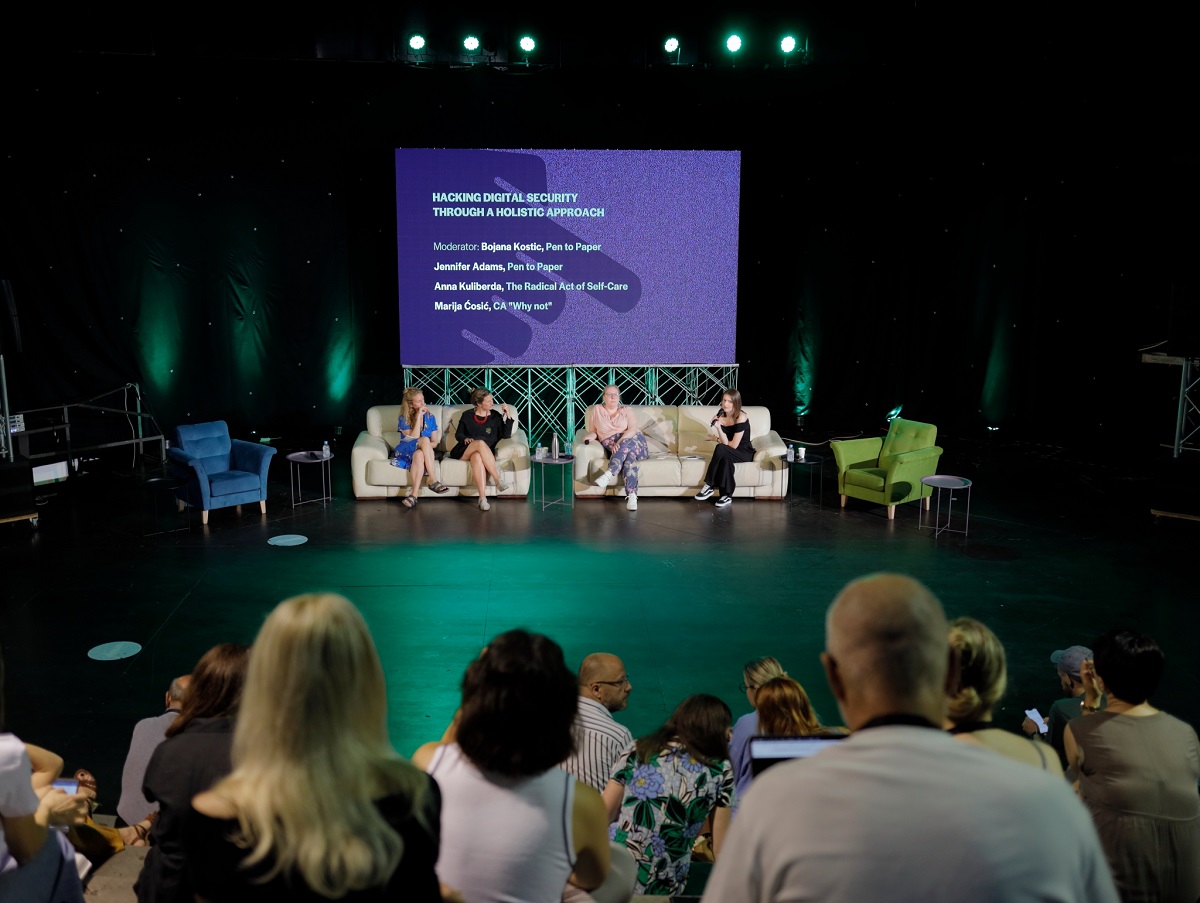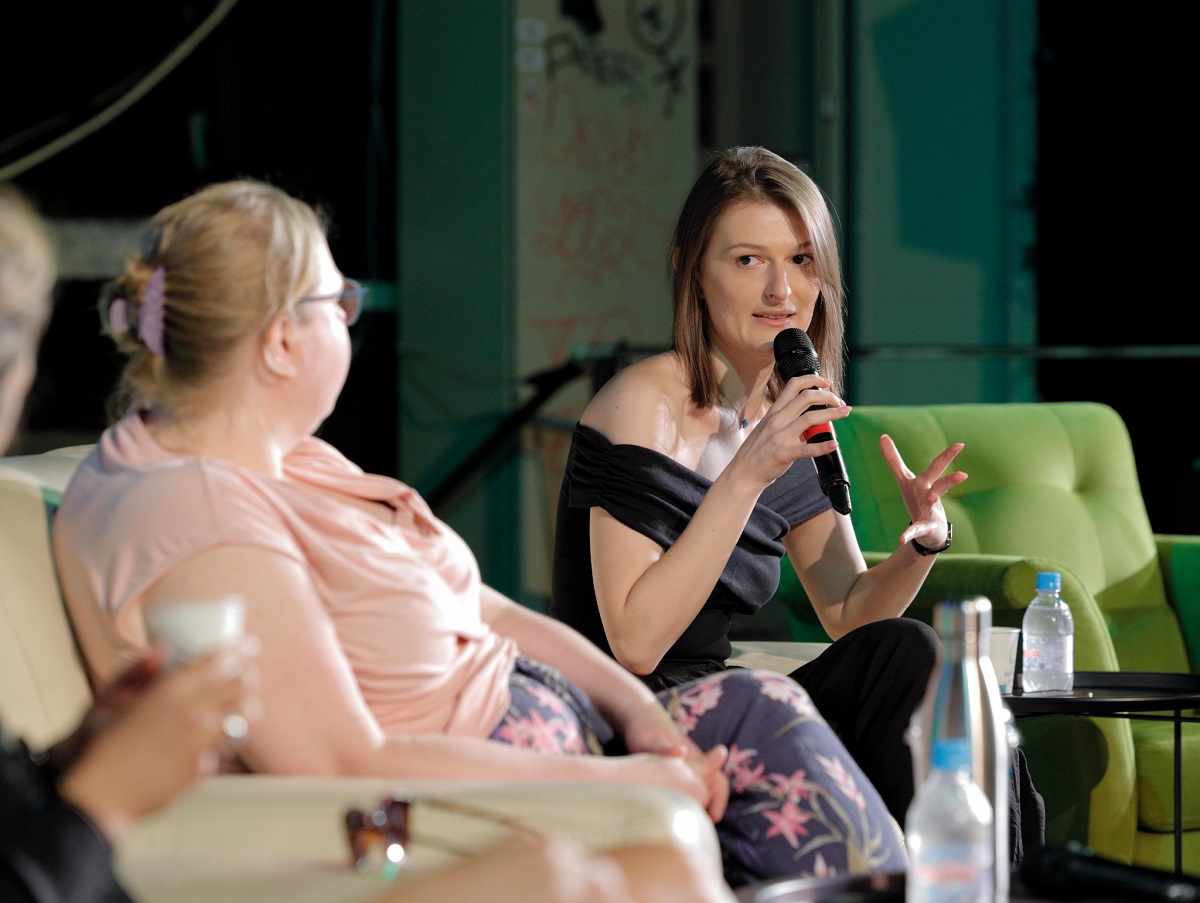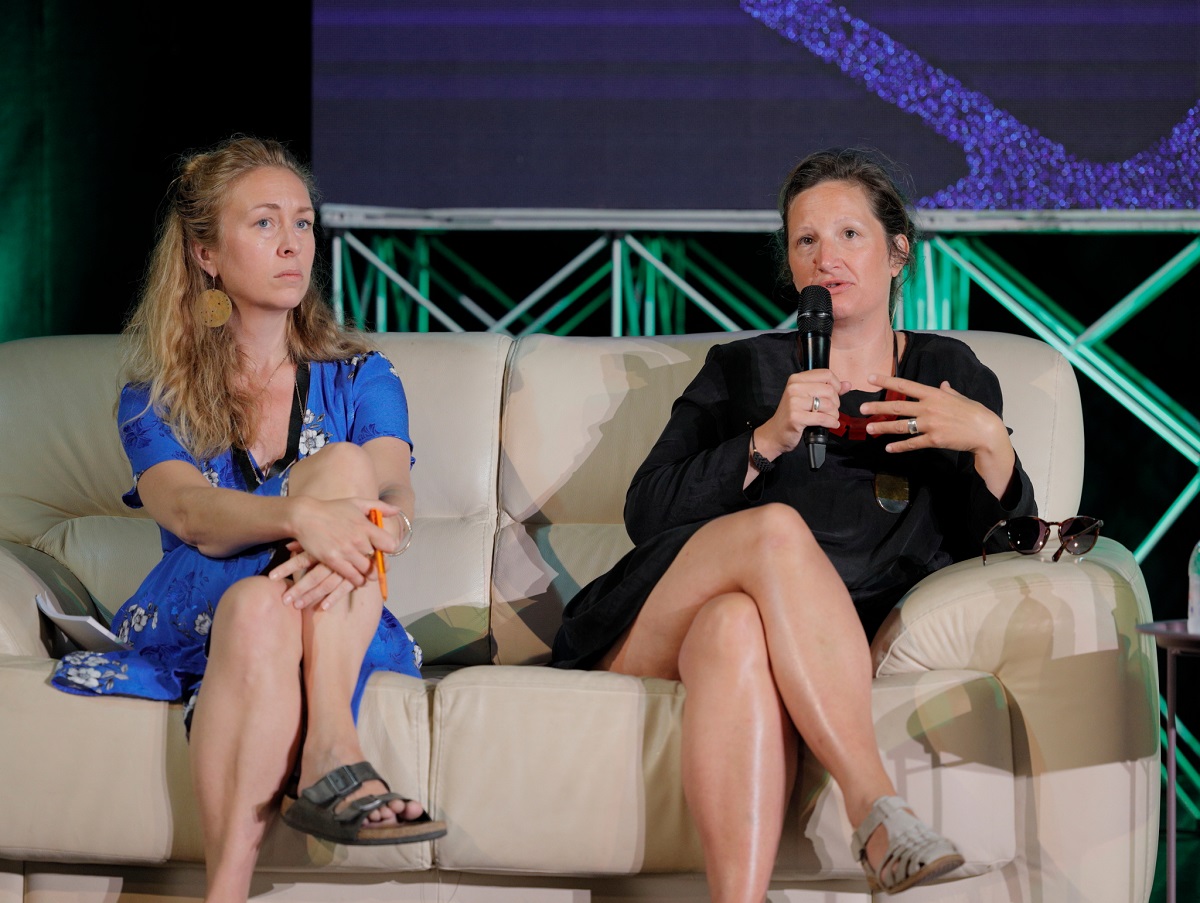Hacking Digital Security Through a Holistic Approach: The Importance of Community-Based Methods
The first panel of the second day at the 12th POINT Conference looked into the complexities of digital security for women, moving beyond conventional protective measures such as VPNs and password protection. Titled “Hacking Digital Security Through a Holistic Approach,” the session focused on community-based approaches to ensure safety and security.

Moderated by Bojana Kostić from Pen and Paper, the panel featured speakers Jennifer Adams, also from Pen and Paper, Anna Kuliberda from The Radical Act of Self-Care, and Marija Ćosić from CA Why Not. The participants shared their personal interpretations of safety and security, with Ćosić remarking that these concepts are subjective and evolve over time. The panelists noted that while “safety” is more personal, “security” is defined in relation to perceived threats.
“It is a thin line between security and oversecurity, when you constantly live in a sense of danger,” stated Kuliberda.

Adams elaborated on how security and safety are deeply relational, influenced by factors such as identity and location. “Like most women, it is hard to define what security and safety are for me, but it’s very easy to understand what it’s not. For me, the holistic approach means looking at all components of my identity, who I am, and the intersectional aspects of it,” she explained. She emphasized that a woman’s sense of security could vary significantly depending on her environment.
Addressing the prevalent narrative in digital security training, Adams pointed out that many workshops for women overemphasize their vulnerabilities, which can inadvertently make them feel less secure. Ćosić shared a personal story from her start in journalism when an influential figure in Bosnia and Herzegovina posted a YouTube video urging followers to gather information about her, including her photo. She stressed the importance of having a supportive workplace culture and a community safety net during such times. “What it boiled down to, for me, was having the sense of protection from your workplace, having a work culture where your colleagues are there for you,” she said.

The discussion also touched on the challenges women face when showing vulnerability, as they risk being labeled “emotional.” Kuliberda underscored the necessity of speaking out despite these challenges, stating, “Any story of hardship is worth telling, because it is not all about successes.” She added that security approaches need to evolve alongside organizations, as what works at one point may not be effective later.
Adams emphasized the personal nature of these security issues, critiquing the common advice for women “not to take it personally.” She asserted, “This is not theoretical; these are our lived experiences. When we’re talking about these experiences, we are talking about our lives. To ask us to be unbiased is an absolute nonsense ask, and one I refuse completely.”
The panel concluded by highlighting that the reasons women feel unsafe in digital environments are part of a broader structural issue, which cannot be resolved merely with VPNs and password protection. The session underscored the necessity of a holistic, community-based approach to digital security, reflecting the diverse and deeply personal experiences of women in the digital age.
Author: Maida Salkanović